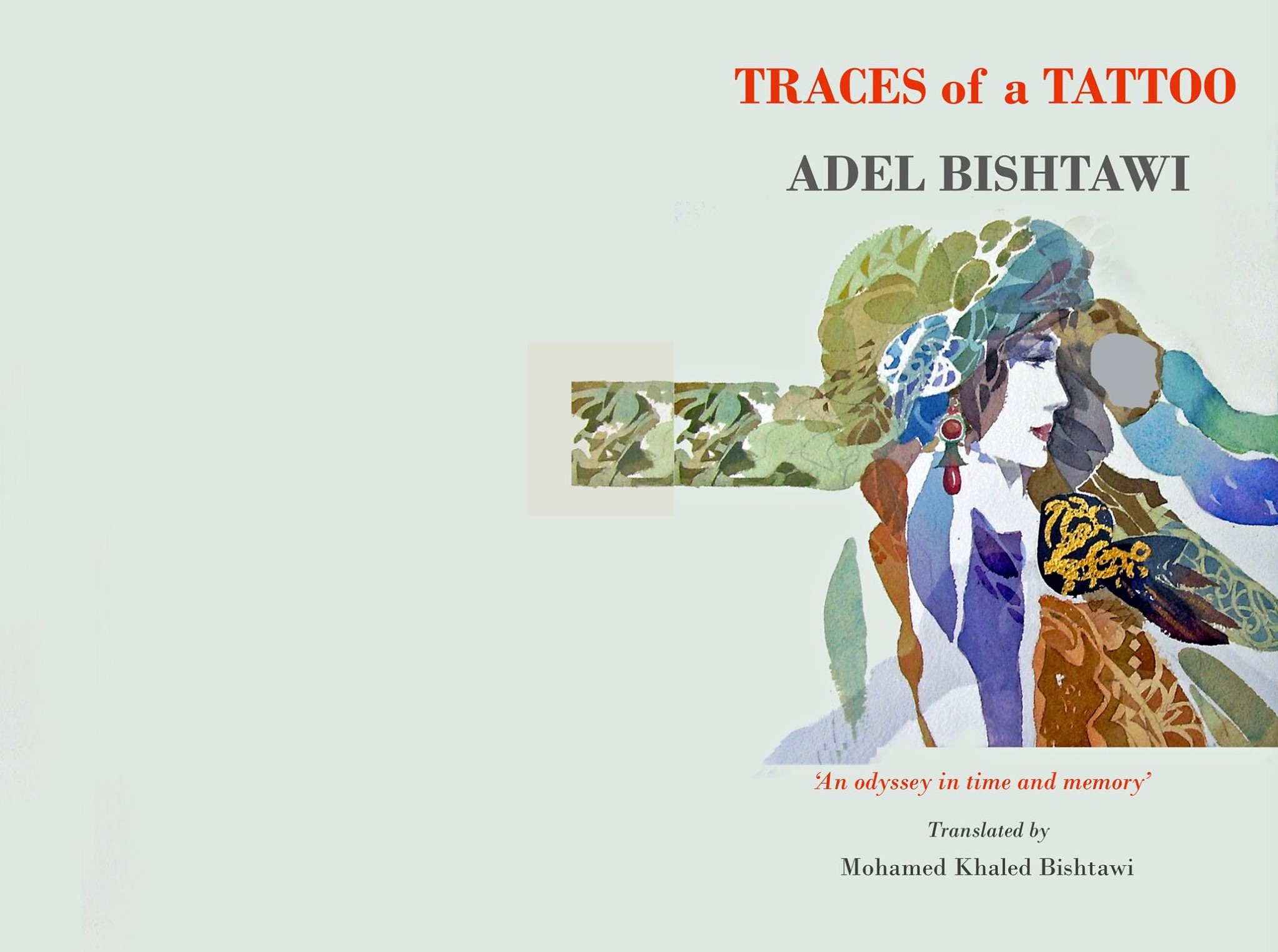
𝗧𝗥𝗔𝗖𝗘𝗦 𝗢𝗙 𝗔 𝗧𝗔𝗧𝗧𝗢𝗢
A novel by
𝗔𝗗𝗘𝗟 𝗕𝗜𝗦𝗛𝗧𝗔𝗪𝗜
Reviews
● “The scars of failed love are often more painful than the wounds.” ●
…Traces of a Tattoo earns one of its distinguished qualities from its scrupulous monitoring of its characters in their silence, speech and movements: in its scrutiny of their reactions, their deep and ambiguous fears, their sense of guilt and anxiety; and captures the tribulations of emotions and records the sound of pleasure as it crawls over, spreading numbness in both body and soul. In total, the novel becomes a spectrum that reflects the colours of life and existence as well as that pivotal conflict – the female conflict and all that it entails: east versus west, technology versus backwardness, all the dualities, the gamut of antitheses that is ever present in the Arab author’s mind. More…
Hayat Newspaper (London): A review by Lebanese critic Ahmed Zainuddin
►https://www.facebook.com/adelsaidbishtawi/photos/a.1183379768451057.1073741826.1179072745548426/1303849419737424/?type=3
…Traces of a Tattoo earns one of its distinguished qualities from its scrupulous monitoring of its characters in their silence, speech and movements: in its scrutiny of their reactions, their deep and ambiguous fears, their sense of guilt and anxiety; and captures the tribulations of emotions and records the sound of pleasure as it crawls over, spreading numbness in both body and soul. In total, the novel becomes a spectrum that reflects the colours of life and existence as well as that pivotal conflict – the female conflict and all that it entails: east versus west, technology versus backwardness, all the dualities, the gamut of antitheses that is ever present in the Arab author’s mind. More…
…Traces of a Tattoo is no ordinary novel. Evoking the example of giant literary Arabic works such as Cities of Salt by Abdulrahman Munif, The Boys of our Neighbourhood by Najib Mahfouz, Midday Spectra by Bahoush Yassin (Morocco), it is an odyssey in time and memory unravelling the story of two generations (fathers and sons) over the full length of 554 pages. Sahra Newspaper (Morocco): A review by Moroccan critic M. Aloutt
More…
►https://www.facebook.com/adelsaidbishtawi/photos/a.1183379768451057.1073741826.1179072745548426/1303862963069403/?type=3
…Traces of a Tattoo is one of the most beautiful Arab novels I have read in recent years. It acquainted me with this surprising solitary writer, jeweller and skilled craftsman who proved both creative and entertaining. But this novel is not simply about achieving the challenging balance between creativity and entertainment. It carries several layers that need to be studied carefully if the reader is to avoid being carried away by its deceptive simplicity and easy reading as well as by its “exquisite” text. Quds Al Arabi Newspaper (London): A review by Hussam ul-deen Mohamed
More…
►https://www.facebook.com/adelsaidbishtawi/photos/a.1183379768451057.1073741826.1179072745548426/1303867876402245/?type=3
…Traces of a Tattoo by novelist and short-story writer, Adel Bishtawi, invokes the unconventional novel which does not adhere to standards that literary critics propose and attempt to impose on writers and readers in a given time…It is a novel with something of everything: romance, realism, imagination, innermost thoughts, and coincidences taken as devices of utmost importance. It exercises acute observation of the characters’ behaviours and fates, summing it all up in a skilful but lucid dramatization of the complexity that marks the life of a human being. A Special Syndicated Review By Syrian Poet Nouri Jarrah
More…
►https://www.facebook.com/adelsaidbishtawi/photos/a.1183379768451057.1073741826.1179072745548426/1303878269734539/?type=3
…It happens that old lovers do meet by coincidence on a lost pavement. And it happens that the meeting of old lovers may come as a daydream, something hard to materialize in reality. And it happens that old lovers may be forced by circumstances to stay in one place so as to face the past of their love story. But when all such these coincidences take place in a single book, the result may sound like a romantic novel very much like a love song. Khaleej Newspaper (UAE): A review by Iraqi critic Fatima Al Muhssin
More…
►https://www.facebook.com/adelsaidbishtawi/photos/a.1183379768451057.1073741826.1179072745548426/1303849419737424/?type=3
… suddenly, an incident evolves to carry Hisham to another time and place. As he follows the movement of the crowd, he spots a pickpocket in the act of snatching the handbag off the arm of a lady and disappearing. Hisham approaches the scene and, to his surprise, finds out that the victim, who happens to be with her daughter, is no other than his old beloved, Alia. The lady is the very same girl he had loved back in Damascus a quarter of a century earlier. Rai Al Aam Newspaper (Jordan) A Review by Palestinian Critic S. Huzayyen
More…
►https://www.facebook.com/adelsaidbishtawi/photos/a.1183379768451057.1073741826.1179072745548426/1303849419737424/?type=3
Image: Full cover of the English edition of Traces of a Tattoo